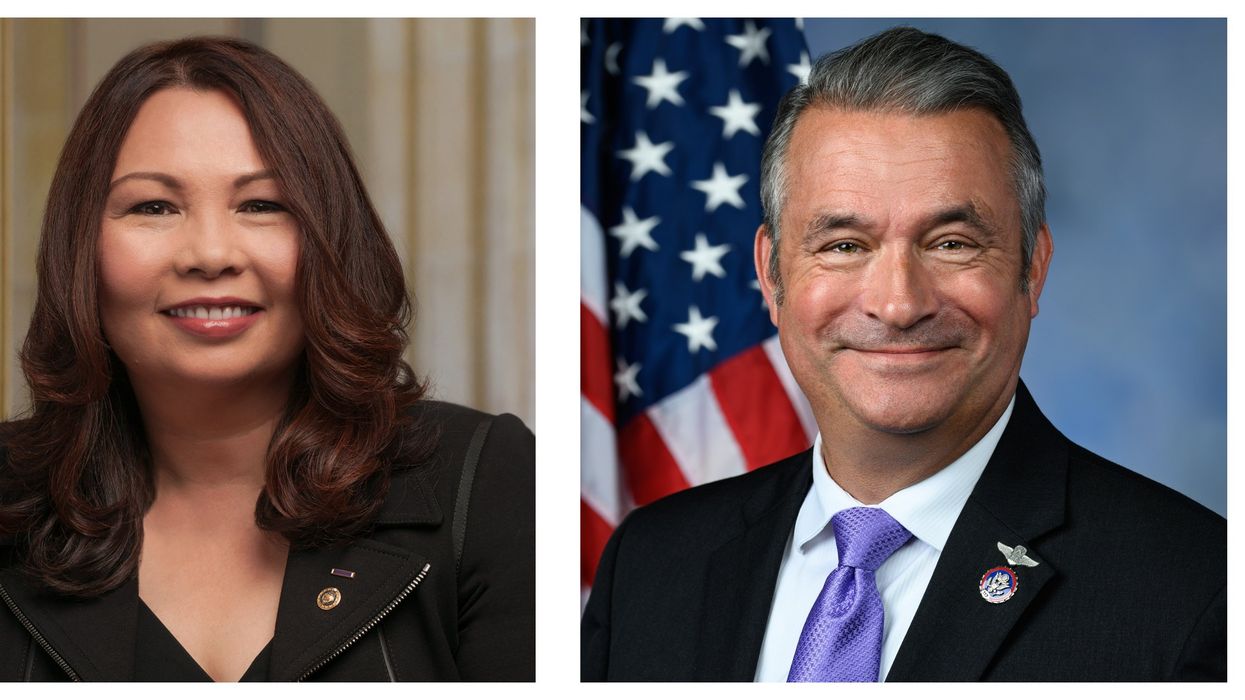Fitch is the president and CEO of the Congressional Management Foundation and a former congressional staffer.
Our nation’s capital is known for many things — but good management practices are not among them. Stories regularly surface of bizarre tales of harassment and abuse by members of Congress. An Instagram feed a few years ago unearthed dozens of stories by staff outing less-than-desirable managers and members for their bad practices. But what about the good leaders and good managers?
Like any profession, Congress actually has quite a few exemplary office leaders. And the beneficiaries of these role models are not just their staff — it’s also their constituents. When a congressional office can retain great talent, sometimes over decades, the quality of the final legislative product or constituent service rises immensely.
Two members of Congress who exemplify this quality are the winners of the 2024 Congressional Management Foundation’s Democracy Award for Workplace Environment — the “Life in Congress Award.”
The Democratic winner, Sen. Tammy Duckworth (Ill.), has a saying she repeats to her team: “What’s the point in working for a senator’s office if you can’t work to improve things you care about?” She’s passionate about hiring staff with a wide variety of backgrounds and experiences because she truly values hearing about issues and solutions from as many perspectives as possible. She also knows that if her staff succeeds, the state of Illinois and her constituents will succeed as well. To that end, the office hosts yearly staff retreats and conducts quarterly formal check-ins for staff to connect and communicate with their supervisors. The office set up a novel year-long mentorship program that includes matching a new staffer with a longer-tenured employee for confidential advice and guidance. The program also provides formal training and monthly group check-ins.
The office boasts a “passion projects” initiative, which encourages staffers to spend time on projects they are passionate about regardless of their portfolio. Additionally, the office has a dedicated staff member who leads a diversity, equity, inclusion and accessibility committee, which hosts “lunch and learns” with guest speakers and helps ensure that the office and the senator herself are approaching their work through a DEIA lens. The Duckworth has also worked hard to make sure that staff who are caregivers for family members feel supported, as she is always cognizant of the pressures staff in similar circumstances to hers are facing.
The Republican winner, Rep. Don Bacon (Neb.), operates his office with the understanding that if you put your people first and empower them, they will put the mission first. His office offers benefits include a flexible telework policy, compensatory time off and three office-sanctioned fitness breaks per week. The office has the best staff retention rate and the smallest turnover index number in the entire Nebraska delegation, and 11 staff members have served since Bacon’s first term over seven years ago.
The ability to focus on the mission in an open-door and collaborative environment is one of the primary reasons that the congressman also was recognized by the Center for Effective Lawmaking as the most effective Republican House member in the previous Congress — and why he is a previous Democracy Award winner (for the best constituent services). At any given point, there are almost always staff members enrolled in educational programs at the graduate level. In addition, the office frequently helps staff members get accepted into various fellowship programs. The office staff work with interns on actual legislative matters and the robust internship program also includes multiple one-day field trips, hosted by the chief of staff, to locations such as the National War College and Annapolis for the purposes of gaining a broader understanding of the history of American government and its various departments.
Probably one of the most amazing anecdotes about the Bacon office stemmed from one of staffer’s brush with death. Suffering from a rare disease, the staffer needed a new liver. Four of his office colleagues (including Bacon) offered to donate. That kind of esprit de corps doesn’t happen by accident, and the intentionality of Bacon and his team to create the best work environment results in a better workforce and better results for his constituents.
It may be hard to connect a well-run government office with tangible benefits for constituents, but I can attest to seeing first-hand accounts of this happening daily, especially during the pandemic. When constituents badly needed services, some facing nearly life-and-death choices, the seasoned, well-run congressional offices delivered, making a huge difference for the people they serve.




















Trump & Hegseth gave Mark Kelly a huge 2028 gift